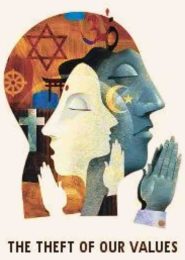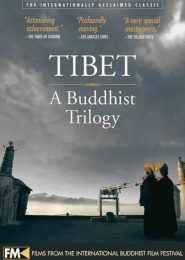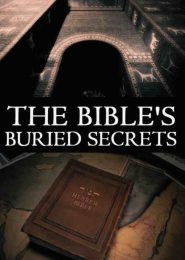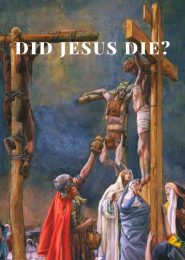Evolution Vs. God (2013)
Ray Comfort, a New Zealand-born evangelist, confronts the age-old debate between evolution and creationism in his 2013 documentary, Evolution vs. God: Shaking the Foundations of Faith. Armed with a camera and a relentless curiosity,
Comfort takes to the streets, engaging random people in conversation. His mission? To extract evidence for evolution from unsuspecting passersby and to challenge the prevailing scientific consensus.
Comfort’s approach is straightforward: he seeks answers from both the public and experts. Armed with a microphone, he poses questions that cut to the core of the evolution debate.
His subjects include four evolutionary biologists: Peter Nonacs (UCLA Professor), Craig Stanford (USC Professor), PZ Myers (UoMM Associate Professor), and Gail E. Kennedy (UCLA Associate Professor).
These experts represent some of the world’s top universities, and their insights are crucial in unraveling the complexities of evolution.
The documentary dives into the evidence surrounding vestigial organs—those seemingly useless remnants of our evolutionary past. Comfort challenges the prevailing belief that these structures support the theory of evolution.
Through interviews and analysis, he scrutinizes the fifth digit—the little finger—and its supposed evolutionary significance. Is it truly a relic of our distant ancestors, or does it serve a purpose beyond what meets the eye?
In other words, Comfort pits faith against science, and creationism against evolution. The clash is fierce, and the stakes are high. As the interviews unfold, we witness the tension between belief systems. Not so fast, though—the experts’ responses reveal nuances and complexities.
Meanwhile, Comfort’s probing questions expose gaps in our understanding. In my experience, this isn’t just a battle of facts; it’s a battle of worldviews.
Even better, the documentary highlights the role of natural selection. Comfort challenges the prevailing narrative, questioning whether natural selection alone can account for the staggering diversity of life on Earth.
By now, we’re deep into the heart of the matter. And it doesn’t stop there. The experts grapple with the intricacies of adaptation, survival, and the unseen hand shaping our existence.
The documentary doesn’t shy away from the tough questions. But wait, let me tell you something: it’s not just about evidence; it’s about conviction.
By now, you should be intrigued. But wait—there’s more: the clash of ideas reverberates beyond the screen. As if that’s not enough, the battle rages on, leaving us pondering the origins of life itself. We’re not through yet: the quest for truth continues.
To sum up, the conflict between evolution and god is not merely one of theories but also one of worldviews. Comfort forces us to reconsider our ideas in the face of her unwavering search for solutions.




